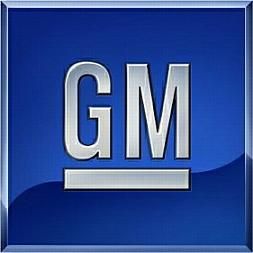General Motors has committed to building a new $250 million facility to develop alternative fuels.
They are building it in China. The facility was announced today by GM chairman and CEO Rick Wagoner, speaking at a news conference held in Beijing. It will be located in Shanghai, with the first phase of construction to be completed before the end of next year.
Wagoner issued a prepared statement, in which he said that “he new GM Center for Advanced Science and Research will support China as it undertakes one of the most rapid technological transformations in world history. It is designed to bring together various resources, including Shanghai Automotive Industry Corporation’s new Energy Unit, to accelerate research in the areas of energy-efficient and environmentally friendly automotive technologies, as well as alternative fuel pathways that are socially responsible, economically viable, environmentally sustainable, and technologically feasible.” SAIC is GM’s Chinese partner.
In 1953, newly elected President Dwight Eisenhower nominated Charles Wilson, then president of General Motors, to be the Secretary of Defense. Wilson appeared before the Senate committee considering the nomination, where he encountered a question about whether he intended, if confirmed, to sell his GM stock. Wilson said he did not. When asked if he thought that to be a conflict of interest, he said no and explained why not: “I’ve always though that what is good for the United States is good for General Motors, and vice-versa.”
Clearly, Rick Wagoner does not subscribe to Wilson’s theory.
General Motors increasingly has been committing its resources to China, and not to the domestic or European markets. The decision to build the center in Shanghai follows other moves by GM to concentrate resources on the Chinese market, including investments in plant and equipment and development of a design center. To the extent that the company has exhibited a core strategy for the future, it appears to be concentrated on so-called emerging markets.
The new Shanghai research center suggests that GM sees alternative fuels as the key to these markets, which have vast potential in the coming decades, rather than a means of being competitive in the American market. At some level, that’s understandable. Annual auto sales in China, for example, have risen so rapidly that they are now 25% as large as those in the United States. China has embarked on an enormous expansion of its infrastructure, including roads. Predictions that the Chinese new car market will exceed that of the United States within the next decade may, at the current rate of its expansion, be conservative.
Of course, having an American company controlling a substantial portion of the world automobile market is certainly a better thing, for both the company and the country, than if only foreign companies were major players in the world market. But, implicit in “Engine Charle” Wilson’s famed remark was the premise that the United States came first with GM. That’s simply no longer the case.
That should be of concern to both the company and the country. A global company still needs a base on which it can count. Foreign countries, sooner or later, have a way of putting their own nationalist interests ahead of the interests of companies from other places, especially when nationalistic envy sets in. An old Chinese proverb puts it succinctly: “The tallest nail gets hammered first.”
General Motors new contract with the United Auto Workers eliminates the room for excuses. If the “better Buicks” continue to be the Buicks built in China, GM can count on losing more and more of its market. If GM focuses on China and other emerging markets at the expense of investment and intellectual commitment to the domestic market, it will end up being a factor in neither.
It’s not a Chinese proverb, but it is one that Mr. Wagoner would be well advised to remember:
“A bird in the hand is worth two in the bush.”

